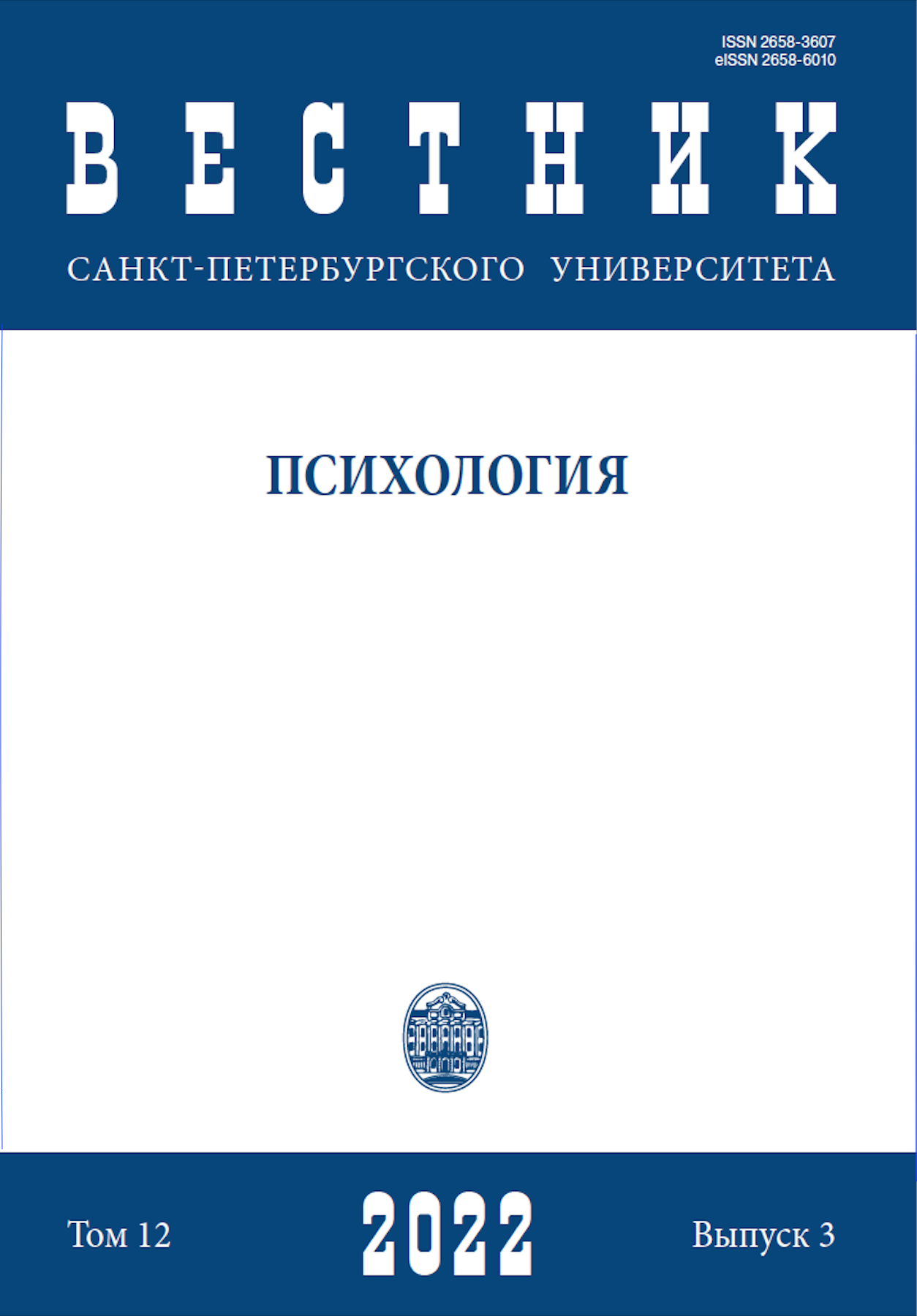Особенности совладающего поведения у травмированных спортсменов
DOI:
https://doi.org/10.21638/spbu16.2022.308Аннотация
Совладающее поведение играет значимую роль в восстановлении травмированного спортсмена. Выявление особенностей совладающего поведения может внести неоценимый вклад в развитие такой проблемы, как психологическое восстановление спортсмена. Цель работы — изучение особенностей совладающего поведения травмированных спортсменов. Выборку исследования составили 279 профессиональных спортсменов различных видов спорта в возрасте от 16 лет до 41 года (М=19,3, SD=17,6), которые для целей исследования заполняли следующие методики: сбалансированная шкала удовлетворенности жизнью (базовых потребностей) и шкала эмоционального состояния Э.Динера (E.Diener) и опросник COPE, разработанный для измерений ситуационных копинг-стратегий и диспозиционных стилей. В зависимости от пола, классификации вида спорта, количества и степени тяжести травм спортсмены тяготеют к различным копинг-стратегиям. Нами была выявлена связь между общим благополучием травмированного спортсмена и такими копинг-стратегиями, как позитивное переформулирование, концентрация на эмоциях и юмор. По итогам проведения одностороннего дисперсионного анализа мы частично подтвердили нашу гипотезу о том, что существуют различия в используемых копинг-стратегиях у спортсменов, представляющих различные категории: пол, классификация вида спорта, количество травм и степень тяжести повреждения. Проведенный корреляционный анализ (коэффициент корреляции Спирмена) частично подтвердил наше предположение о том, что существует связь между общим благополучием травмированного спортсмена и используемыми им копинг-стратегиями. Несмотря на то, что коэффициенты корреляции показали низкие значения, мы считаем, что это обусловлено гетерогенностью нашей выборки.
Ключевые слова:
совладающее поведение, спортивная травма, копинг-стратегия, психология спорта, преодоление травмы в спорте, overcoming injuries in sports
Скачивания
Библиографические ссылки
References
Загрузки
Опубликован
Как цитировать
Выпуск
Раздел
Лицензия
Статьи журнала «Вестник Санкт-Петербургского университета. Психология» находятся в открытом доступе и распространяются в соответствии с условиями Лицензионного Договора с Санкт-Петербургским государственным университетом, который бесплатно предоставляет авторам неограниченное распространение и самостоятельное архивирование.




